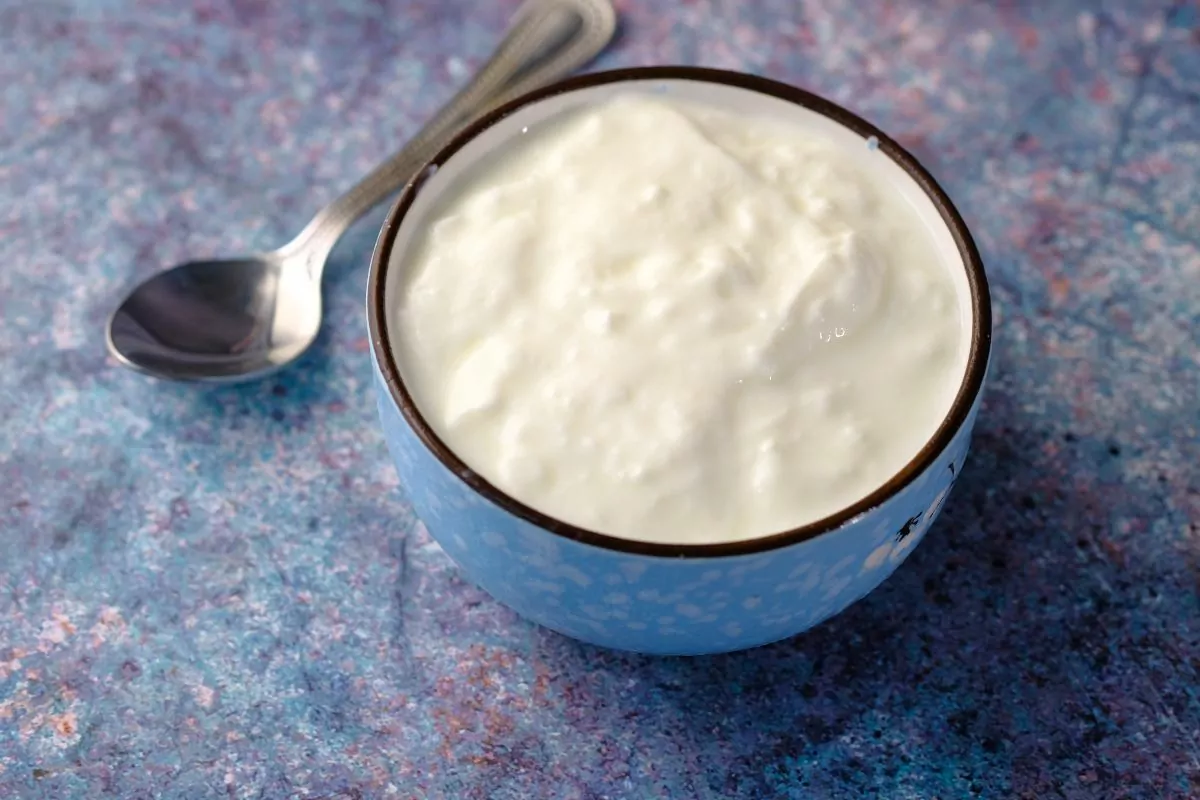Can dogs eat yogurt? Find out the truth and treat your furry friend right. Woof-worthy insights await!
Can Dogs Eat Yogurt?
Yogurt for dogs can be a healthy treat in moderation. Choosing plain, unsweetened yogurt without any additives like xylitol is important. Some dogs may be lactose intolerant, so start with tiny amounts and monitor for any adverse reactions. Yogurt offers probiotics that promote good gut health, but always consult your vet before adding new foods to your pup’s diet.

What Kind of Yogurt Can Dogs Eat?
Selecting the right yogurt for your canine companion is key to a tasty and healthy treat. Look for plain, unsweetened varieties as the best yogurt for dogs. Flavors like plain, vanilla, and natural fruit can be safe options. Additionally, consider yogurts with live and active cultures, promoting good gut health.
Can Dogs Eat Yogurt Every Day?
Feeding your dog yogurt in moderation can be beneficial, but it’s crucial to exercise caution. While plain yogurt can be a healthy addition to their diet, other varieties, like lemon yogurt, may contain added ingredients that could harm dogs. To ensure a balanced diet, offer yogurt as an occasional treat, not a daily staple.
Is Yogurt Good for Dogs?
Yogurt can indeed be safe and beneficial for dogs to consume under certain conditions. In fact, plain yogurt specifically, without added sugars or artificial sweeteners, can make a nutritious treat. As yogurt is a probiotic, it aids digestion and helps maintain the gut health of your canine friends.
Similar to humans, some dogs may be lactose intolerant, meaning their bodies do not produce enough of the enzyme lactase that breaks down the lactose in dairy. These dogs may experience upset stomachs or other digestive issues if they consume yogurt.
Furthermore, the high fat content in some yogurts might not be suitable for all dogs, especially those with specific dietary needs or restrictions. Even in the case of plain yogurt, moderation is key.
Hence, while yogurt can be an excellent dietary addition for many dogs, it’s essential to determine if your pet can tolerate it and only offer it in moderate amounts.
How Much Yogurt Can I Give My Dog?
The amount of yogurt you can safely give your dog primarily depends on your dog’s size, health condition, and tolerance to dairy products.
Can dogs have non-fat yogurt? It’s essential to remember the key rule of moderation we discussed earlier. Just like other treats, you should limit yogurt to <=10% of your canine’s daily caloric intake.
A few teaspoons daily is a good starting point for a small dog. If your dog is larger, consider giving a couple of tablespoons. However, non-fat yogurt should not replace any portion of a balanced diet for dogs. These quantities might seem small, but remember, too much of anything can lead to complications, like weight gain or digestive issues.

The Pros and Cons of Feeding Yogurt to Canines
Pros
Nutrition: Yogurt is an excellent protein and calcium source, which can be beneficial for dogs’ bones and muscle development.
Yeast Infection Control: In some cases, the probiotics in yogurt can help control yeast overgrowth, potentially benefiting dogs who are prone to conditions like yeast infections on dog bellies.
Immune System Support: The live cultures found in yogurt can help strengthen your dog’s immune system, promoting overall health and disease resistance.
Cons
Allergies: Some dogs may be allergic to dairy products like yogurt. Symptoms of dairy allergies include itching and skin rashes to more severe reactions.
Potential for Overfeeding: There’s a risk of overfeeding due to yogurt’s creamy texture and palatability. This might lead to weight gain and an imbalance in the dog’s diet, as they may consume less of their nutritionally complete regular dog food.
Alternative Sources of Probiotics for Dogs
If you’re seeking alternative sources of probiotics for dogs, several options can provide these beneficial bacteria to support a dog’s digestive health.
Firstly, certain types of cheese, such as cottage cheese, are rich in probiotics and generally better tolerated by dogs than yogurt. However, remember to offer these in moderation due to their high fat content.
Secondly, fermented vegetables like sauerkraut or kimchi can also serve as good sources of probiotics. It’s crucial to ensure these are not spiced or prepared with ingredients harmful to dogs, like onions or garlic.
Finally, probiotic supplements designed specifically for dogs are available. These supplements are formulated to support canine gut health and often come in flavors dogs enjoy. Always consult a veterinarian before introducing a new supplement into your pet’s diet to ensure it’s safe and suitable.

The Bottom Line
In conclusion, when asking, “Can dogs eat yogurt,” the answer largely depends on the dog’s individual tolerance and the type of yogurt. Yogurt offers potential health benefits but also carries risks if not properly managed.
Remember, your dog’s diet should always be balanced, nutritious, and safe. Please share this article with fellow canine owners and help them make informed decisions about their pets’ diets.
